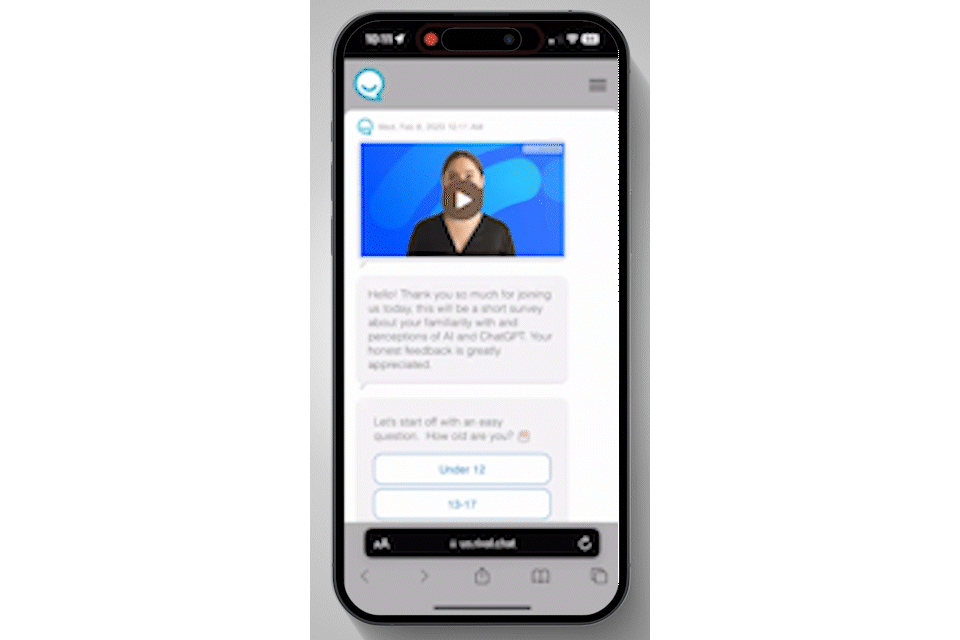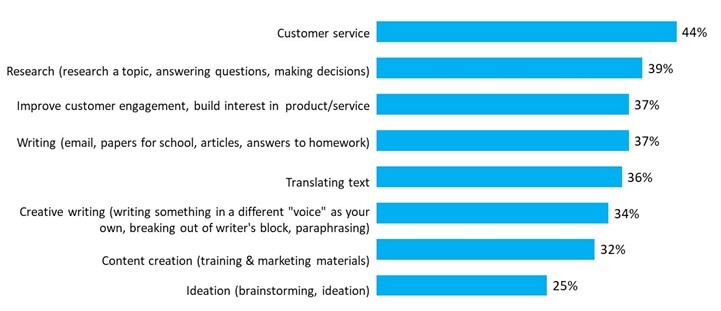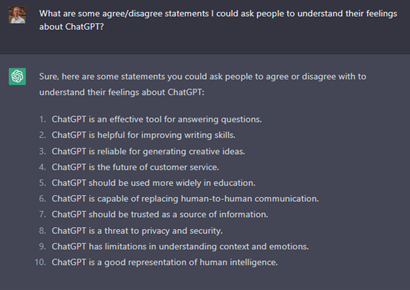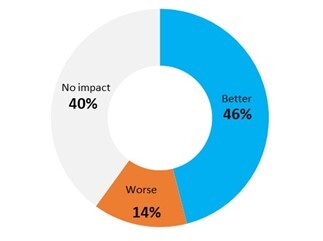While I am very optimistic about the interest and excitement AI and ChatGPT (and others) offers, time will tell. Most consumers are still learning, exploring, and finding the best usage(s).
I live in the Bay Area and work in Tech, so maybe I am biased? But amidst the tumultuous tech market with daily layoffs, companies missing earnings, and bankruptcies, one glimmer of encouragement and inspiration is the evolution of artificial intelligence. In the past 2 months since its public launch, OpenAI’s ChatGPT chatbot has caught the attention, imagination, and enthusiasm of the AI community and the public, even becoming the fastest app to reach 100 million users. That all makes sense to me – I live and breathe tech – but what about outside of my tech world?
In late January, my son’s high school sent out a memo calling attention to ChatGPT, encouraging parents to experiment with it and sit down and talk to their kids about this new technology. Its message was to not fear these new advancements but to use it honestly, strategically, and transparently as a tool to further student learning.
Wow. If my local high school is already talking about ChatGPT, what about the rest of America (outside my world of tech)? Have they learned about it, tested it out - and what do they think? What, if any, are the divides between Gen Z/young Millennials (students) and those age 25+ (many parents)? As a researcher, I had to find out!
Naturally, we used our chat approach to talk with 600 consumers, from across the US, ages 13-59. Through our mobile chat-based, conversational approach using the mobile messaging-based Rival Platform, we gathered information about how consumers feel about OpenAI/ChatGPT, and how it might impact society in the future. We also did a check in on which top brands/companies are associated with these new AI tools. (more coming on this in a follow-up blog)

Our findings revealed that while only a third of the US public are familiar with OpenAI/ChatGPT today, two-thirds are excited or optimistic about the technology. That’s highest with those age 25-44 vs. teens or older adults.
Familiarity and Excitement with OpenAI/ChatGPT

Total, n=599
| ▶ Click play to hear and see 👇 | ▶ Click play to hear and see 👇 | |
|
“What excites me is we only scratched the surface in AI type software and the learning capabilities of these programs will improve in years to come as better data gets loaded into them and we learn how to improve using it." |
||
| She/her, age 18-24 | He/him, age 35-44 | He/him, age 13-17 |
Social channels educate and influence
Information about OpenAI/ChatGPT is spreading virally, with 40% reading/watching about it on social media (TikTok, Instagram, Facebook, Twitter, etc.) and YouTube (31%). Numerous people on social are posting silly, intriguing, and sometimes concerning experiments, so this tracks that social media would be leading the way. News sources and friends and family members also are information sources, though currently only for just under a quarter of consumers.
Taking it out for a spin
While only under a third have already played around with/tested out an OpenAI application today, half plan to do so in the next month. Many have also heard of ways people are using it and are imagining ways they could use it themselves in the future. Our participants suggested getting step by step help with a math problem (though its answers should be double checked), writing a unique poem, or generating ideas for a business plan. People are quickly finding new ways to implement these new AI tools, though I’m not sure I’m ready to have AI read my radiology scans yet!
Top Uses for OpenAI/ChatGPT

Total, n=599
| ▶ Click play to hear and see 👇 | ▶ Click play to hear and see 👇 | ▶ Click play to hear and see 👇 |
|
||
| He/him, age 13-17 | She/her, age 35-44 | He/him, age 25-34 |
Sean, on our research team, asked ChatGPT for statements to ask to understand feelings about the technology and we even used some of them in this survey.

Think about it – if you saw those research statements above in a survey you were taking or someone on your research team gave you in a questionnaire, they’d fit right in, wouldn’t they? We pulled back that curtain in the survey and told people the last group they answered were written by ChatGPT - 54% said “no way” or “cool!”
The applications for this are countless and the sky really is the limit. Still, given the range and fragmentation of usages, these data show that while the technology has several potential applications, there is no “killer app” yet. It’s likely only a matter of time though.
Change is a-coming
No matter your views on it, it’s clear that ChatGPT is here to stay and will have a big influence on the future. Two-thirds of US consumers agree that ChatGPT will change the way people work, create content and how students learn/respond in school.
60% say that ChatGPT will impact society in ways we can’t fully comprehend yet, with most thinking for the better. Let’s hope that “for the better” sticks, as it’s not going away any time soon—only 25% think it is just a buzz phrase that will pass.

Total, n=599
People see the limits
Still, reasons for hesitation exist. The jury is still out on ChatGPT making it easy to fake things (47% agree 👍), if it’s ethical (49% not sure 🤷♀️), or even dangerous (43% not sure 🤷♀️).
- “I have no interest in it yet until it has had time to work out kinks like false data and stupid answers that make no sense.” (He/him, age 45-59)
- “I worry that this will take a lot of jobs away for the people.” (She/her, age 45-59)
- “There are very few safety measures in place. It's being fed data faster than security is being fed into it.” (He/him, age 35-44)
And some argue that the output from ChatGPT is just fancy smoke and mirrors that could never replace human thought. Just over half (58%) of US consumers believe ChatGPT has limited understanding of context and emotions. Even fewer think it is a good representation of human intelligence (44%) or is capable of replacing human-to-human communication (40%). Only about a third (35%) agree ChatGPT should be trusted as a source of information. But only 31% are concerned with its threat to privacy and security.
OK then, I am in a tech bubble!
While I am very optimistic about the interest and excitement AI and ChatGPT (and others) offers, time will tell. Most consumers are still learning, exploring, and finding the best usage(s). I do think it will change our world—how we live, work, and learn—as most disruptive technologies do as it continues to emerge and evolve, leading to further advancements.
We're only able to capture these insights because of our immersive, mobile chat-based research approaches that engage people in a fashion that seems natural & organic to the topic.
At Reach3 Insights/Rival Technologies, we’ve been using chat and conversational approaches to talk with people for 4½ years! We get this.

Leigh Admirand
EVP & Founding Partner, Reach3 Insights







.webp?width=65&height=83&name=A-LIGN_HIPAA%20(1).webp)

